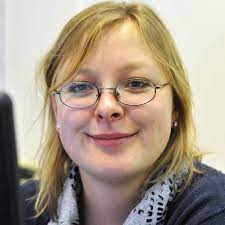CS Colloquium Series @ UCY
Department of Computer Science - University of Cyprus
The Department of Computer Science at the University of Cyprus holds research colloquiums and social hours approximately once weekly. All university students, faculty, and staff are invited to attend. Notifications about new and upcoming events are automatically disseminated to a variety of institutional lists.
If you don't receive these notifications, but want to get informed about upcoming colloquium announcements, you can do the following:
Colloquium Coordinator: Demetris Zeinalipour
Colloquium: Reversing computations modelled by coloured Petri nets, Dr. Anna Gogolinska (Nicolaus Copernicus University, Poland), Tuesday, September 25, 2018, 11:00-12:00 EET.
The Department of Computer Science at the University of Cyprus cordially invites you to the Colloquium entitled:
Reversing computations modelled by coloured Petri nets
 |
Speaker: Dr. Anna Gogolinska |
Abstract:
Reversible computation is an unconventional form of computing where any sequence of performed operations can be executed in reverse order at any point during computation. It has recently been attracting increasing attention as on the one hand it promises low-power computation and on the other hand it is inherent or of interest in a variety of applications. We can distinguish three main types of reversing. The first approach, called backtracking, allows reversing only the operation which was last executed in the ongoing computation. The second approach, causal reversing, allows an action to rollback only if all its effects, have been undone beforehand. The last approach is the concept of out-of-causal-order reversing, where any previously performed operation can be undone. On the other hand Petri nets are a well-known mathematical modeling language, introduced in 1962. They have a form of bipartite graphs with two types of vertices: places and transitions, and dynamical structure. The dynamics is obtained by tokens, which are distributed over places and transferred by transitions. Many extensions of traditional Petri nets have been developed, like Coloured Petri Nets (CPNs), where tokens carry data values.
In this presentation we will introduce a new type of Petri nets, called reversing Petri nets (RPNs), a formalism that embeds the three main forms of reversibility. We will present also a structural way of translating RPNs to CPNs. This translation uses additional places and transitions in order to capture the machinery employed in the RPN framework and demonstrates that the abstract model of RPNs, and thus the principles of reversible computation, can be emulated in CPNs. The transformation can be automated and utilized for the analysis of reversible systems using CPN Tools.
Short Bio:
Anna Gogolinska received her M.S in computer science degree from Nicolaus Copernicus University in Torun in 2009. In 2016 she received her Ph.D. also in computer science from University of Warsaw. During her PhD studies she was mostly interested in bioinformatics calculations. Since 2016 she is an assistant at the Faculty of Mathematics and Computer Science, Nicolaus Copernicus University in Torun, and her focus shifted towards Petri nets, massive parallel computations and reversing computations. Dr Gogolinska has participated in three Polish National Science Centre grants. She was also awarded the Kuyavian-Pomeranian Voivodeship grant in 2013. She was a part of the Organizing Committee of many large scientific symposiums. Her research results have been presented in various conferences and published in numerous papers.